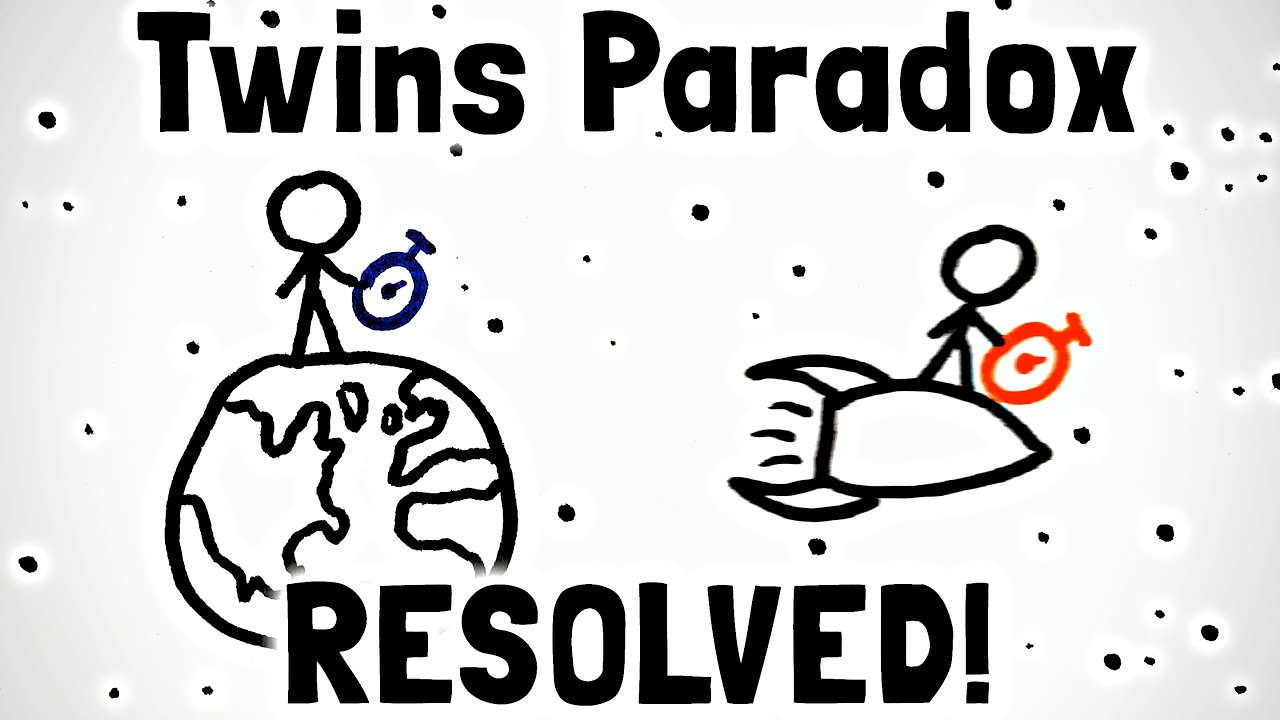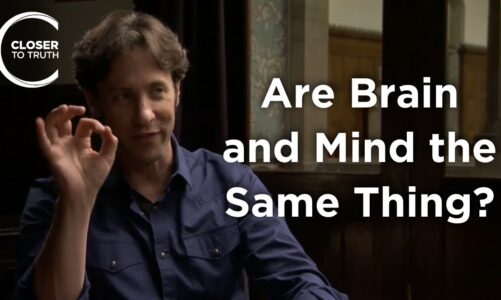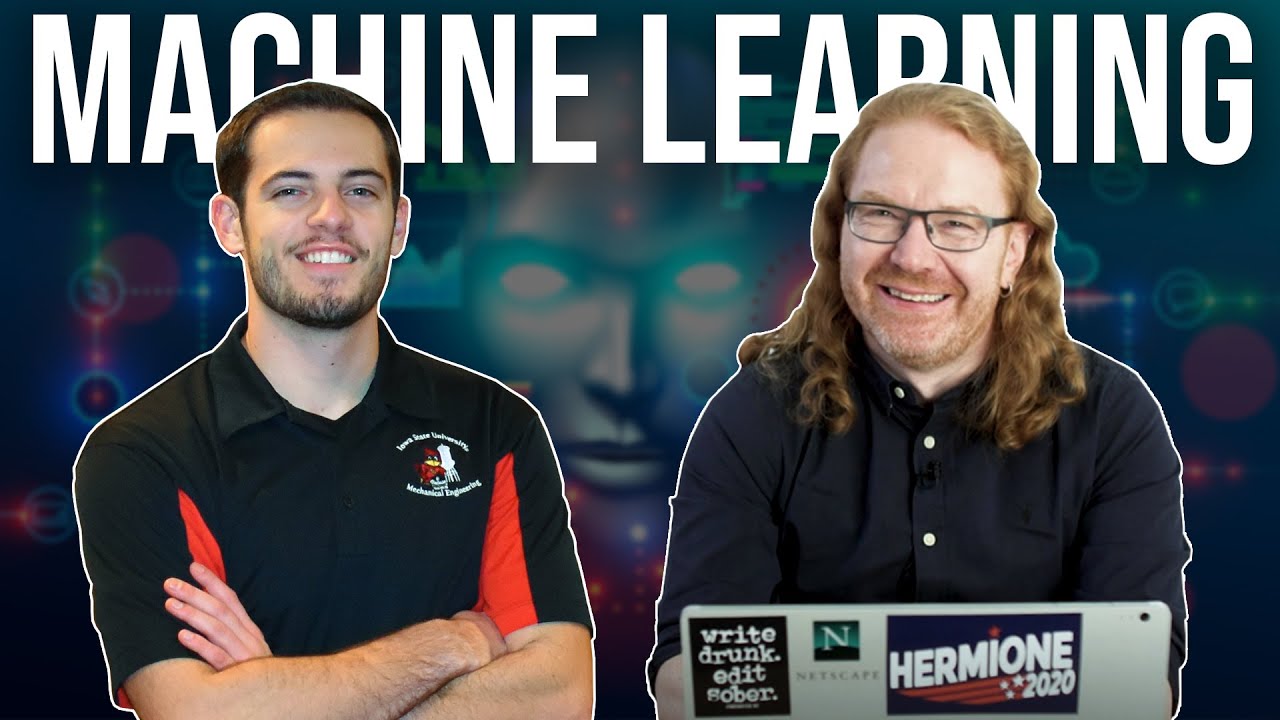minutephysics
One of the most famous paradoxes of all of physics – who’s older? Who’s younger? and WHY? ***** Thanks to The Great Courses Plus (free trial here: http://ow.ly/RCty302dIHU) for supporting MinutePhysics *****
Thanks to everyone who supports MinutePhysics on Patreon! http://www.patreon.com/minutephysics
Link to Patreon supporters here: http://www.minutephysics.com/supporters.html
This video is about the famous “Twins paradox” of special relativity, how time can appear to be faster for two different observers at the same time, and which twin really is older (or younger) – the one who stays on earth or the one who flies in a rocket ship to the stars?
Music by Nathaniel Schroeder, http://www.soundcloud.com/drschroeder
REFERENCES
Muon lifetime and time dilation/relativity: http://hyperphysics.phy-astr.gsu.edu/hbase/relativ/muon.html#c2
MinutePhysics video about Time Rotations & Einstein: https://www.youtube.com/watch?v=ajhFNcUTJI0
Experimental test of time dilation using doppler shift of light: https://en.m.wikipedia.org/wiki/IvesStilwell_experiment
Lorentz Transformations: https://en.m.wikipedia.org/wiki/Lorentz_transformation
Relativity of Simultaneity: https://en.wikipedia.org/wiki/Relativity_of_simultaneity
Paper on twin paradox under constant acceleration: https://arxiv.org/pdf/physics/0604025v3.pdf
Taking Cesium atomic clocks aboard airplanes: https://en.wikipedia.org/wiki/HafeleKeating_experiment
MinutePhysics is on Google+ – http://bit.ly/qzEwc6
And facebook – http://facebook.com/minutephysics
And twitter – @minutephysics
Minute Physics provides an energetic and entertaining view of old and new problems in physics — all in a minute!
Created by Henry Reich
Source



Thats how to get rid of your hatred TWIN
This offers the answer not really an explanation. It's way more complicated than this and a lot is left out that's extremely important
This is so stupid. Relativity is dumb in general though, so it's not your fault. If you change the distance, and hence the travel time, to 100 vs 80 seconds, you suddenly have a larger time gap to explain, with the exact same acceleration.
So if you want to live longer drive in the city not the highway
Oh, I get it!
whispers : I don't get it
All the way through I understood what he was saying, but then when it was done I didn't know what I'd understood…
I could never understand it. As a body approaches the speed of light, its mass increases. So why doesn't the body expand? I mean, here we have a body whose mass increases, right? so why isn't it bloated to the point where it's so big that it can't move? Right? 😉
Luckily I don't have to learn all of these since I am not taking pure physics.
Plot twist: I am taking pure mathematics.
Wait but from the perspective of the rocket, where it itself thinks it hadnt been moving at all, wouldnt the result be the opposite? Where it would see earth as having 2 lorentz movings
I just watched your video about the Portal Paradox and you stated that there's no reference frame in our universe, so velocity can only be measured relative to another object. So the twins' case seems symmetric to me. Each twin sees the other go away, turn around and come back. It shouldn't matter which one stays on Earth, because we can say that our reference frame is attached to the astronaut. So he's not accelerating, but his twin together with Earth does. Or are you saying that there IS a reference frame, which means that the prime postulate of Relativity is false?
I still don't quite get it. For the person on the rocket ship, wouldn't the earth be the one that is changing velocities, i.e. stopping and turning around, and so would that not just cancel out the whole effect?
Nothing new 🙁
What if you stayed on earth and I went at 99.9 the speed of light towards a star, I don't turn around so no acceleration or deceleration , just a straight path at constant speed. From my perspective you are moving and from yours I am moving. Who experiences time slower ??
The music in the background was a turn off for me. Just had to put that out there
bass solo irrelevant and maddening. Can't finish watching this
My question is if motion is relative why not the acceleration.
I STILL don't get it. All of these explanations seem to just skip over the real problem and try to explain it differently. How do I know which one of us was accelerating?
I'm not a trained physicist, but I can't help but see that this situation is symmetric, all that could be said of the stationary reference frame relative to the moving frame could be said of the moving frame relative(From its perspective stationary) to the stationary frame(Now moving relative to the other). Therefore, both would experience less time than eachother, this is contradictory, thus the paradox has not been solved. Please correct me if I am mistaken.
Is… is this how King Crimson works?
Is this why it always seems faster going back home from a vacation rather than going to a vacation?
What if to turn back you use the orbit of a planet ? Thus you would have a linear trajectory in spacetime.
The bit of time skipped in the middle is analogous to the Andromeda paradox. If you are walking towards the Andromeda galaxy while I stand still, you will see the further into its future than I will, owing to its huge distance from us.
But what if the twin that's traveling never returns? Can't we compare their clocks at some instant when the outward journey is taking place… Shouldn't then there still be a difference in their times since the start of the journey (according to relativity) ?. How do you account for that discrepancy then?
Ummm, that is not a paradox.
Edit: I just realized it's a veridical paradox ?
First of all, there is no acceleration in Special Relativity, so we need to resituate the problem so it fits entirely inside Special Relativity. Twin A is in a ship heading back to earth where twin B is waiting for his brother to return. The relative velocity these two frames are moving with respect to each other is some value 0 < v < c, like v = .8c. At time t = 0, an explosion occurs at the midpoint between both twins, and the light reaches each observer at the same time one second later, causing both clocks to start counting from the same moment in time. Since each twin is armed with a telescope in hand, they will each see the clock in their own frame run normally, but the clock in the other twin’s frame will be observed to slow down by the amount dictated by gamma(v) as compared with the passage of time they observe in their own frame. Both twins will insist that the other twin’s time is slowing down relative to their own, the law of algebraic Trichotomy has been violated, and the paradox remains.
This isn’t even a paradox,every humans life doesn’t go slower for faster, every humans life span is the same even if they go to space or not,sure,it could feel like 5 years in space but 10 years on earth but your still technically 10 years older no matter what
year 12 physics textbook explained the observer on the spaceship would see time move faster on earth …. wtf is going on
Why i don't understand
The whole point is to explain what breaks the symmetry. Which you didn't do in this video. ie: why can't the moving observer consider himself as stationary and the person on earth as accelerating and use the exact same mathematics that the stationary observer uses.
You didn't explain this at all.
According to this video, it appears acceleration is the resolution to the paradox, despite other videos to the contrary. Seeing only the rocket experiences acceleration to change direction, even if instantaneous, explains why the rocket person is the youngest.
Misleading, stupid video.
I will just leave this paper here for everyone who wants to read a scientific explanation: http://vixra.org/pdf/1807.0192v1.pdf
This is just a trick. You can frame the twin paradox without having the return journey. As a suggestion, go through your space time diagram and the twin paradox problem again, but this time stop at the halfway point – ie don't turn around and don't come back. Instead, imagine a third twin (well, a triplet) sitting there at the distant end point waiting for you to get there. Because that third triplet is stationary in the same reference frame as the stationary earth twin he must be the same age as the earth twin (their clocks must stay synchronised) and can therefore vouch for the earth twin's age (or time that has passed – same thing). It is an exact proxy for actually being with the earth twin. If you do this exercise you see, by the space time diagrams, that the earth twin experiences 5 seconds for the traveller's journey, and the travelling twin experiences 4 seconds – so far so good. But the travelling twin, considering himself to be stationary, thinks that the earth twin has only experienced 3.25 seconds. However, all he has to do is ask the third triplet when he gets there how old the other two are and he will be told that for them, 5 seconds has passed. Bingo! Paradox! Can someone please answer that?
still confused?
to accelerate, an object needs a force to act on it. apply a force over a distance, and you apply energy. more energy means more mass (e=mc²). more mass means time moves slower (time dilation), which Einstein lays out in General Relativity.
the space twin fires thrusters (or ion beams, or impulse engines — whatever floats your boat), so a force accelerates them rather than the Earth twin. this break of symmetry is where the "paradox" is solved.
Bump all that, I have better idea that make sense…if stationary observer can travel to the moving clock at the speed of light instantly, that observer can jump into the moving clocks pass. but I thinking time dilation is faulty because you can't replace distance with time , because the faster you move the more distance you cover in the same fix time. just because something appears to the observer to take longer, in reality it did not, it only travel further or cover more distance
Einstein was a Charlatan and liar. His theory is fabricated and false. Time cannot be dictated and nobody went to space simply because space travel is a hoax.
this guy does a review of this video and specifically calls it out for being wrong
https://www.youtube.com/watch?v=nRuVGOm7560&t=367s
I think the whole "Minute" thing doesn't work for me. This needs some digestion.
But from the perspective of the astronaut, it's the Earth that's accelerating, decelerating and then accelerating the other way. I don't see how that solves the paradox.
Did not get that at all
A solution in mathematics (Minkowski space-time), not in reality. Time is a PHYSICAL rate of change in material objects (atomic/subatomic structures), time dilation is a temporary changed rate of such a rate compared with other material objects. Can only happen with supply of some form of FORCE on the object (that is gravity, acceleration, deceleration, changed velocity direction = acceleration). This mathematical solution is only mirroring these atomic processes, the result is correct, but the explanation is wrong.
Yes, but when the rocketship turns around… Doesn't the Earth turn around relative to it? And therefore the Earth ALSO skips forward in time?
Listening- 'Twin Paradox'
In mind- 'Im faaaded, these shallow water never meet what I needed, im letting go a deeper dive'